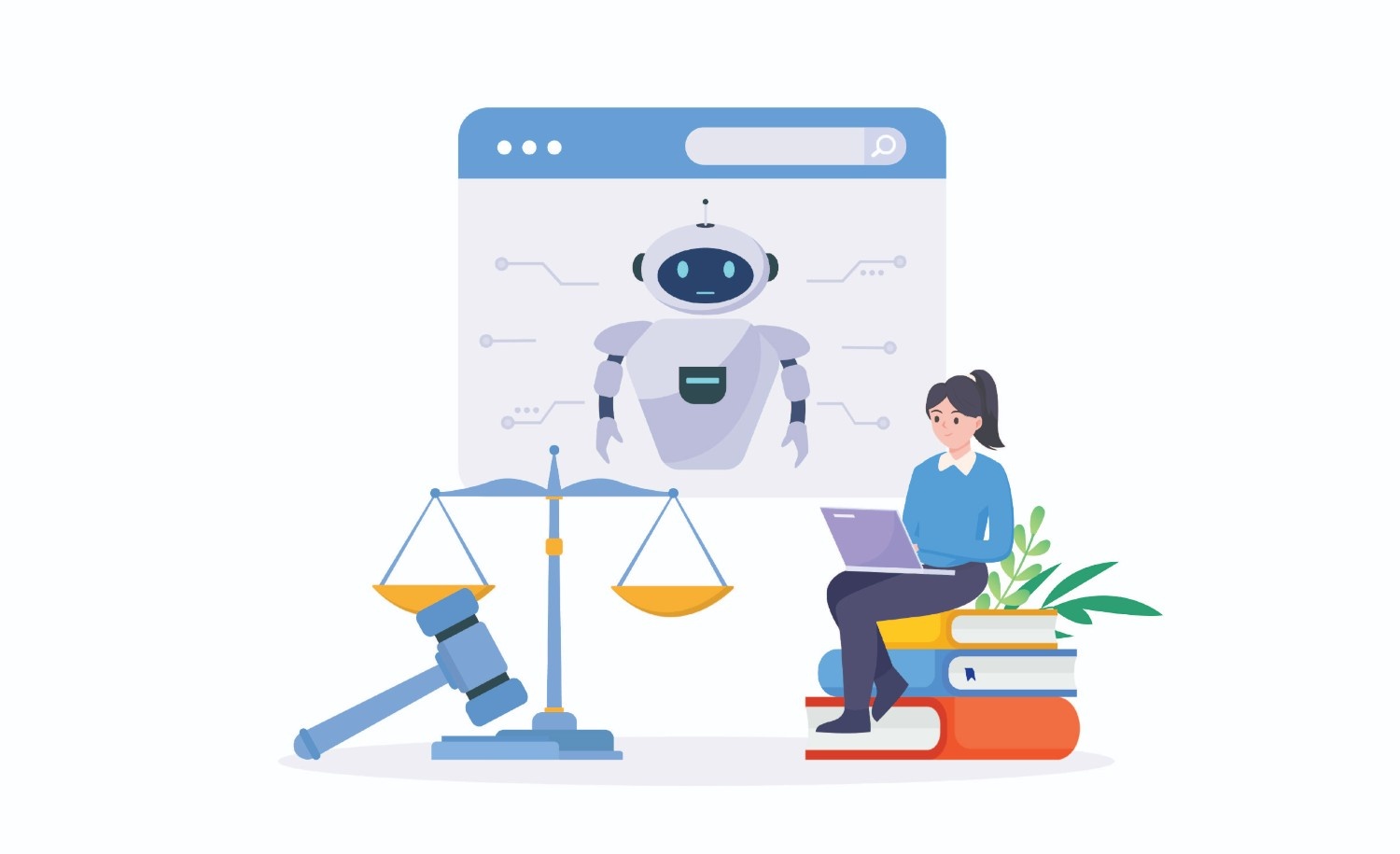The Real-World Impact of AI on Business Operations in 2025
In 2025, AI is no longer futuristic—its driving real change across industries. This article dives into how AI enhances automation, decision-making, customer experience, and risk management in sectors like retail, healthcare, finance, and manufacturing. Learn why tailored AI solutions outperform generic tools and how businesses can start leveraging AI today for smarter, faster, and more scalable operations.
These days, artificial intelligence has become a vital part of our daily lives. Whether you spend your days growing your startup or leading the charge at a large corporation, you're more than likely seeing how AI disrupts existing workflows (in a good way), aids decision-making, and improves customer service.
What was once considered super high-tech is now just a regular part of our lives, making teams work harder and leaders have actual insights they can use. And it’s not only the large enterprises getting into this. SMEs are also hopping onto the AI train to accomplish more, make smarter decisions, and provide better service to their clients/customers.
What about some real-life examples? Let’s take a closer look at how AI is showing up in everyday operations and why that matters for teams trying to have a competitive edge.
How AI Is Reshaping Day-to-Day Business Operations
Rather than a distant fantasy, AI is now a tool that businesses are using today.
See how it's allowing teams to work smarter, not harder:
1. Smarter Automation in Daily Tasks: These days, AI can completely handle tedious and menial work such as invoicing or handling customer service tickets. Hence, it allows employees to concentrate on the things that truly require their intellect, such as fixing exceptional problems or creating stronger relationships with customers.
2. Predictive Analytics for Informed Decision-Making: Predictive analysis keeps companies one step ahead of forthcoming issues rather than only reacting when they arise. Let's take retail as an example; it's about knowing what inventory to stock up on before it gets scarce. And logistics is all about catching a slowdown before it compromises your delivery schedule.
3. Super-Personalized Customer Experiences: AI makes it so much simpler to treat customers like actual human beings. Picture emails that are exactly what somebody desires, or a chatbot that already understands what they enjoy. Those small things truly add up to greater experiences, and clients who remain longer.
4. Helping Teams Get More Done: The effective use of AI is about enabling people to get more work done rather than completely replacing them. Stuff like intelligent assistants, auto-scheduling calendars, and improved task management tools enable teams to concentrate on more important and impacful work.
5. Data-Driven Risk Management: AI tools are seriously impressive at trawling through large datasets and identifying patterns that we may miss. Whether it is fraud, security issues, or compliance matters, identifying issues early on can save an enormous amount of time and money.
Industry Spotlights: AI in Action
Discussing AI is really trending these days, isn't it? But the way different sectors are implementing it every day is even more impressive.
Let's see how businesses in key sectors are incorporating AI into their business in 2025:
Retail: Making Shopping More Awesome
Retailers are completely leveraging AI to be on top of everything, such as discovering what customers wanna buy, when they'll buy it, and how much product to stock. Some are even employing awesome visual tools to view the shelves in real time. Add in personalized offers and recommendation engines, and AI isn't merely driving sales; it's also making it a whole lot easier and a heck of a lot more enjoyable for everyone.
Healthcare: Improved Care, Faster Decisions
AI is appearing everywhere, such as in medical apps that assist physicians in identifying early signs of sickness and virtual assistants that remind patients to adhere to their treatment regimens. Predictive models are also being employed by hospitals to manage personnel and resources much better, and they’ve got chatbots that will answer patients' questions around the clock. It's accelerating things without cutting corners.
Finance: Keeping Up with Risk and Fraud
If Banks or financial institutions feel like something’s not right, they can't simply sit idly. Here, artificial intelligence enters the equation and assists them in identifying any suspicious transactions in milliseconds, preventing fraud in real-time before it is completed. And, it’s also accelerating loan approval and investment planning, which equals smarter decisions and satisfied customers.
Manufacturing: Predictive Maintenance and Process Optimization
In manufacturing, AI is assisting groups to identify issues with equipment before they become huge issues. For example, by determining when a particular machine is going to break down or will soon need to be worked on, manufacturers can schedule maintenance rather than scrambling when it goes wrong. It's also improving the quality control and reducing waste, so everything goes smoothly with minimal downtime.
Why Businesses Need Bespoke AI Solutions
Off-the-shelf AI solutions are convenient when you're just beginning. But if you're serious about getting results, that ready-made solution tends to have some drawbacks. Why is that? It's because it wasn't specifically created for your company.
Each team is different, what their clients need, and how they operate their systems. What works for one company might not make sense for another. In such a case, partnering with a bespoke AI development company can be a complete game-changer.
Rather than fitting a one-size-fits-all solution into your process, custom AI actually resonates much better with the way your people work. Whether it’s a chatbot that fully absorbs your business speak or a forecasting engine that genuinely comprehends your unique data, along with automation that streamlines a messy internal process, custom AI solutions allow you to get the most out of your technology and your team.
Key Benefits for Business Leaders
It's not simply jumping on the new AI bandwagon. It's truly about addressing genuine concerns and making more intelligent decisions.
ere are the 5 things business executives are observing out there:
-
Greater Efficiency and Cost Savings: When we automate repetitive tasks, teams spend less time correcting human errors and more time creating something more impactful.
-
Improved Customer Experience: Fast responses, personal support, services that actually get the job done. It’s all about creating experiences that increase customer retention.
-
More Informed Decisions: Leaders no longer need to make decisions based on intuition because they have real-time information and predictive analytics at their fingertips. Today, they make decisions based on sound, actionable data.
-
Better Risk Management: AI can analyse data and observe patterns faster than humans. Catching anomalies such as potential compliance issues, security vulnerabilities, or indicators of fraud early helps us avoid some costly damage control in the long run.
-
Scalability: It’s much simpler to scale when your systems can handle it. AI tools are programmed to get a lot more done by themselves, so you can scale without adding additional costs.
Need some real-world examples of how technology can improve service? See how AI-powered workforce management tools are transforming HR.
How to Start Your AI Journey in 2025
Thinking about bringing AI into your business? You don’t need to overhaul everything on day one.
Here are 4 easy things to help you get started:
1. Identify High-Impact Use Cases: Start by identifying what’s nagging you the most. Is it forecasting, inventory, or customer service? Identify such areas where even a small tweak could make a huge difference.
2. Set Clear, Realistic Goals: Before starting, define your goals clearly. Maybe it’s cutting response times in half. Maybe it’s improving accuracy in reporting. Whatever the target, knowing it upfront helps you stay focused and measure progress.
3. Choose the Right Partner: AI tools are not one-size-fits-all solutions. Partnering with people (AI developers, consultants, etc.) who understand your sector and know what your business truly requires is extremely crucial. Talk to seasoned suppliers or a bespoke AI development firm to develop solutions that actually fit your business requirements.
4. Pilot, Measure, and Iterate: Begin simple. Try your AI concept in one location, observe what occurs, and adjust accordingly as you go along. That way, you can get things figured out quickly without risking too much initially.
Looking for inspiration on ways to automate and improve your customer service? Check out these strategies for small businesses.
For credible data on AI’s growing business impact, the McKinsey Global Survey on AI found that more than 50% of companies have adopted AI in at least one function, and those using AI strategically are seeing significant cost reductions and revenue growth.
Conclusion
AI is no longer just something in the movies; it's completely transforming the way companies do business, from small startups to massive enterprises.
The ones who are getting into it are not only keeping up; they're already miles ahead. They're making faster and informed decisions, servicing clients better, and eliminating repetitive work that takes a lot of time.
First, you need to understand what you want to fix or work on. Some pre-made tools can assist you somewhat. But if you want something that takes hold, creating special solutions for your business is where all the magic happens.
So, whether you're still considering it or hyped to level up something that's already performing well, one thing is certain: with the right AI game strategy, you can work smarter, move faster, and absolutely dominate 2025 and beyond.

Subscribe & get all related Blog notification.





Post your comment